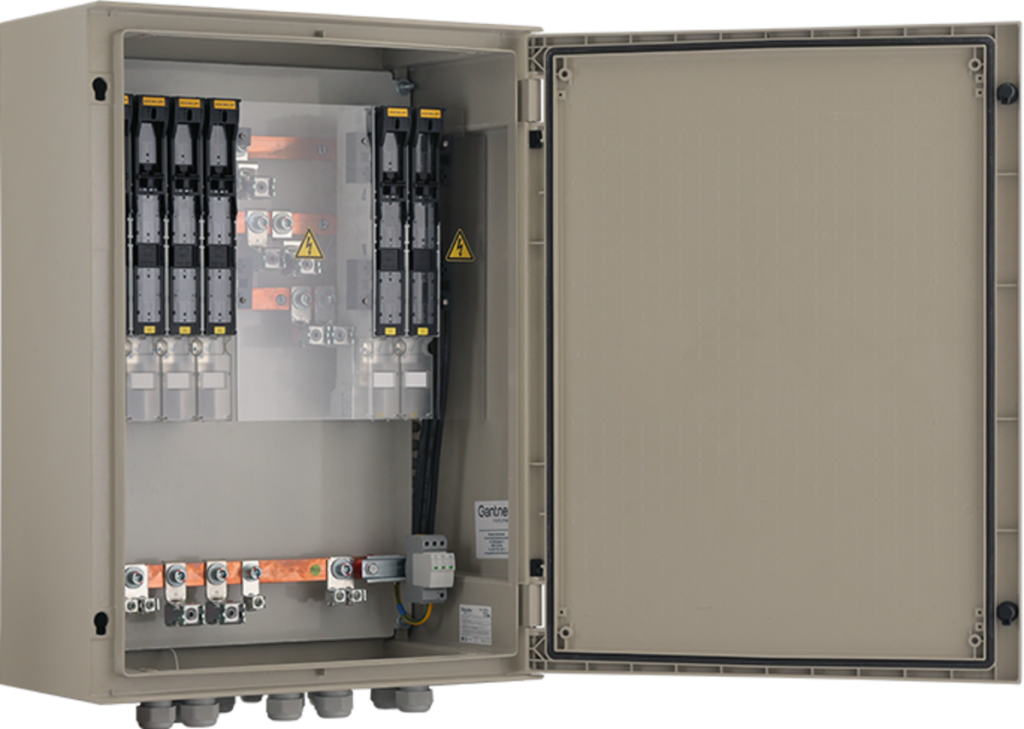A combiner box is not an absolute requirement for all solar energy systems, but it is a common and beneficial component in many installations, particularly those involving multiple solar panels or strings. The need for a combiner box depends on the design, size, and configuration of the solar system. Here are some factors to consider:
- Number of Panels or Strings: Smaller solar systems with just a few panels might not require a combiner box, as the number of panels can be directly connected to the inverter or charge controller. However, in larger installations with multiple panels or strings, a combiner box becomes more relevant to centralize the connections and manage the wiring.
- Voltage and Current Levels: Solar panels generate direct current (DC) electricity, and the panels in a string are usually wired in series to increase the voltage. Combiner boxes are useful for aggregating the higher voltage output of multiple strings before they enter the inverter. This helps optimize the voltage levels for efficient energy conversion.
- Safety and Protection: Combiner boxes incorporate overcurrent protection devices, such as fuses or circuit breakers, which are essential for preventing damage caused by excessive current flow due to short circuits or other electrical faults. These protective measures can enhance the safety of the system.
- Monitoring and Maintenance: Combiner boxes often include monitoring capabilities, allowing you to keep track of the voltage of each string or panel. This can help with identifying any underperforming panels or addressing potential issues. Additionally, combiner boxes facilitate maintenance by providing a centralized location for access and diagnostics.
- System Scalability: If you plan to expand your solar system in the future, a combiner box can provide an organized and scalable way to add more panels or strings to the system without major rewiring or modifications.
- Environmental Conditions: Systems located in areas with harsh weather conditions or extreme temperatures can benefit from the environmental protection provided by a weatherproof combiner box.
- Regulatory Requirements: Depending on local electrical codes and regulations, combiner boxes might be necessary to ensure compliance with safety standards.
In summary, while smaller solar systems might function without a combiner box, larger systems or those with multiple panels or strings can benefit from the organization, safety, monitoring, and protection that a combiner box offers. When designing a solar system, it’s essential to consider the specific requirements of your installation, the local regulations, and the goals you have for the system’s performance and longevity.


